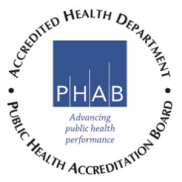Dental Hygiene Collaborative Care (DHCC) allows Arkansas-licensed dental hygienists to enter collaborative agreements with Arkansas-licensed dentists to deliver preventive dental services to children and older adults in public settings.
Collaborative agreements, required by Act 89 of 2011, are written agreements between licensed dentists and licensed dental hygienists. Under collaborative agreements, dental hygienists can provide prophylaxis, fluoride treatments, sealants, dental hygiene instruction, and assessment of a patient’s need for further dental treatment. Such services must be provided in public settings and can be provided without the dentist being onsite or prior examination of the patient by the dentist.
Getting a Collaborative Care Permit
Hygienists and dentists wishing to practice DHCC should:
- Determine the public setting(s) in which services will be provided
- Develop DHCC documents required by the Dental Practice Act
- Apply for DHCC permits through the Arkansas Department of Health Office of Oral Health
- Apply for DHCC permits through the Arkansas State Board of Dental Examiners (ASBDE)
- It is strongly advised that the Dental Practice Act and the Rules & Regulations of the ASBDE and the Arkansas State Board of Health be read carefully prior to application.
- The ASBDE will be the final issuer of the DHCC permit
Frequently Asked Questions
Q. What is a public setting?
Public settings are defined in the Arkansas State Board of Health rules and include:
- Adult long-term care facilities
- Charitable clinics that provide free or reduced-fee services to low-income patients
- Community health centers
- County incarceration facilities
- Facilities that primarily serve individuals with intellectual or other developmental disabilities
- Head Start programs
- Homes of homebound patients who qualify for in-home medical assistance
- Hospital long-term care units
- Local health units
- Schools
- State correctional institutions
Q. Which DHCC documents are required by the Dental Practice Act?
- Article XIX of the Dental Practice Act requires the creation of:
- Templates for these documents are hyperlinked above
- It is strongly advised that the Dental Practice Act and the rules and regulations of the ASBDE and the Arkansas State Board of Health be read carefully prior to finalization of these documents
Can I use DHCC permits at my dental office?
No, DHCC permits are intended to increase access to preventive dental services in underserved areas; they are not intended for use in regular dental offices.
The Arkansas State Board of Dental Examiners (ASBDE) has established rules for hygienists wishing to practice in a dental office without the presence of the dentist (such as when the dentist is on vacation). Please contact the ASBDE for more information.
Does DHCC replace the role of a dental home?
No, the DHCC model of care was specifically developed to preserve established dental provider/patient relationships and to help Arkansans without a dental home connect with providers when needed.
Community Prioritization
The Arkansas Department of Health Office of Oral Health determines prioritization of communities in which collaborative services are permitted based upon provider availability, relevant oral health surveillance data, and other applicable public health datasets deemed appropriate by the Department of Health.
- A directory of reports and datasets used to determine priority areas is available on the Office of Oral Health webpage.
Downloads
- Act 89 of 2011
- Arkansas State Board of Dental Examiners
- Arkansas Department of Health Office of Oral Health DHCC Permit Application
- Arkansas State Board of Dental Examiners DHCC Permit Application
- Arkansas State Board of Health Rules & Regulations for Dental Hygiene Collaborative Care
- Dental Practice Act: Article XIX Dental Hygienist Collaborative Care Program


